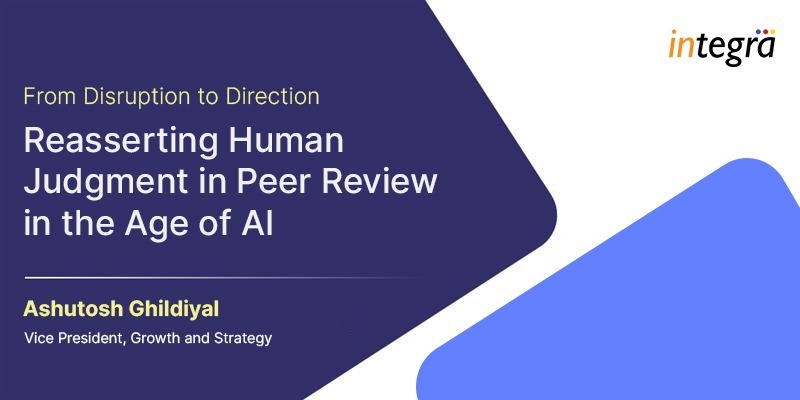
Me: Jenny, take me to the nearest Mexican Restaurant.
Voice Assistant in the car: Okay. But the nearest is not the best one. Would you like to go to Cocina Mexicana, which is the best in town? You need to travel just five miles more.
Me: Sure.
Voice Assistant: Destination set to Cocina Mexicana. Start driving and follow the directions.
This situation isn’t fiction anymore. Technological advancements through induced intelligence or Artificial Intelligence (AI) have enabled machines to interact with humans via smart and easy user interfaces. As a result, machines are “learning” to act and respond according to the situation, rather than just obeying commands programmed in a pre-defined syntax.
Since its inception, AI has been a key enabler of growth and innovation across industrial domains. Despite the occasional instances of collapse due to AI Winter as a result of over-inflated promises and inability to consistently deliver on robust ROI rise, AI is increasingly used across disciplines to achieve a high level of accuracy in automated analysis and decision-making on both simple and complex operational processes. You are using AI every day when you leverage virtual assistants like Alexa to learn about the weather condition or to help you reach a restaurant or when you log into a website and enter your query before a chatbot. The possibilities with AI are endless.
AI has made a significant impact on the learning domain by streamlining processes and enhancing user experience. AI has helped optimize the delivery of effective training methods by aiding in the personalization of training programs to enhance learner experience. Artificial intelligence enables automation of the learning process and increased user engagement by proposing programs based on learner preferences and objectives. EDUCAUSE, a leading nonprofit organization, promotes higher education through the use of Information Technology and considers AI among the top 6 key technologies and practices in the learning domain. According to their 2021 EDUCAUSE Horizon Report on Teaching and Learning AI has enabled “self-regulated learning (SRL), sometimes called metacognition, the ability to monitor and productively adapt one’s learning process”. The report lists several examples from various universities to justify their findings. A few of them are listed below:
- Holly – Durham University, UK: An AI student engagement platform to promote student success through the admissions process for their staff.
- Language Chatsim – The University of British Columbia: Uses an avatar that is connected to a chatbot that can deliver natural responses to students. This helps students learn a language by speaking with the avatar in a virtual environment.
- Digital Learning Scorecard – The University of Iowa: Uses machine learning to identify students who are struggling academically.
Adaptive Learning as a field in AI has further revolutionized the learning experience. Here, AI employs virtual tutors, commonly known as learning agents, to analyze the behavior, strengths and weaknesses of learners by studying their learning and interactivity patterns. These learning agents then suggest the level of complexities and the best learning path to address the unique needs of each learner. This form of online and self-paced learning has the same effectiveness as classroom learning, where the teacher provides individual care and customized response addressing differing and varying student needs. AI-based adaptive learning not only creates a personalized learning path but also increases learner engagement, provides immediate assistance and feedback, hence increasing the course completion rates.
AI also has a strong presence in the field of Natural Language Processing (NLP). NLP is associated with reading text, understanding the content concerning the context and then processing it. NLP consists of two major units; Natural Language Understanding (NLU) and Natural Language Generating (NLG). NLU “understands” the content from any given huge chunk of data. NLG helps to generate the content automatically based on the requirement. This contributes to an enhanced learning experience when using virtual tutors. The virtual tutor can provide a meaningful summary or a custom opening remark on every session using NLU and NLG while a learner is engaged in self-paced learning. To illustrate this with an example, virtual assistants like Siri and Alexa use NLP that consists of both the NLU and NLG units. When you talk, or give a command or instruction, to Alexa, the NLU unit understands the spoken text by transforming it into numbers and the NLG unit prepares the answer or action according to the command or instruction. Then, it activates a voice response and proceeds to act on the instruction provided.
NLP uses techniques like syntactic analysis and semantic analysis to break text into smaller parts, label those parts as noun, verb, adjective, etc., remove repetitive words and capture the meaning of the text. NLP also uses text extraction and language translation to recognize and extract information from the text and translate course materials into different languages. The most common uses of NLP are checking grammar, evaluating subjective answers, recognizing speech, converting text to speech, reading optic characters, and translating from one language to another. Advanced NLP applications not only check the grammar of the content but also correct the grammar and provide suggestions to improve the meaning and readability of the content. The most popular example of such an application is Grammarly. Integra’s home-grown NLP application, iAuthor, helps authors with proofreading and copyediting of their content before sending it across for publishing.
The increase in the popularity of AI has resulted in a surge in the demand for AI-based courses. An AI Index Survey conducted by Stanford University suggests that the world’s top universities have significantly increased investment in AI education over the past 4 years.
While the advantages of AI-based learning are obvious, it is not without its challenges. Various forums and universities have time and again raised ethical concerns over user privacy where AI is used to study behavioral patterns by analyzing user interaction. AI has also raised a threat for academic integrity as various bots and apps can paraphrase content from sources to avoid plagiarism. Students may be tempted to use such bots and apps to portray content from authentic sources as original, legitimate content in their project reports and theses.
Did we just unleash the Genie of Aladdin’s Lamp or the Frankenstein’s Monster? Let the future decide.
Recent Blogs

Why LaTeX Still Matters in Scholarly Publishing—and How the Right Partner Makes All the Difference

Print, Pedagogy, and AI: The New Architecture of Educational Publishing


